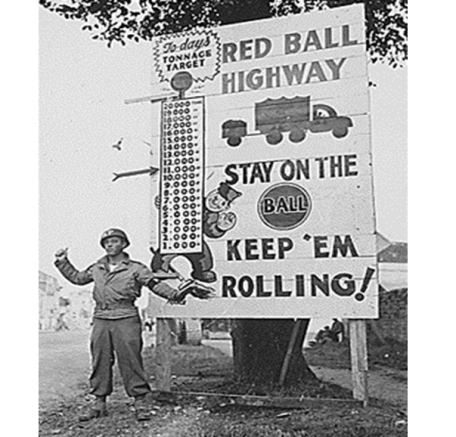Headline News
Teamsters and the Red Ball Express

During World War II, many of the dedicated soldiers and sailors serving in the the U.S. Armed Forces were African-American. Among the most famous were those who served on the Red Ball Express.
After the Allied breakout from the Normandy beachheads in July 1944, the armies started a rapid advance across France. However, because rail-lines did not reach into the interior of France, trucks were needed to deliver supplies of food, fuel and ammunition from the rail-heads to the advancing units.
With this in mind, the U.S. Army’s Motor Transport Brigade created a re-supply operation known as the Red Ball Express. This designation came from the red painted balls posted on the side of supply trucks and on road sign posts. The Express began operations after the liberation of Paris on August 25, 1944.
During its service, there were over 130 quartermaster truck companies involved in the mission. Hundreds of drivers and relief drivers participated in supplying Allied units across northern France. Most of the soldiers running the Red Ball Express were black and many of those drivers were Teamsters in civilian life. The convoys were subjected to ground and aerial attacks and treacherous driving conditions. There were many recorded acts of heroism preformed along the supply routes. During the Red Ball Express’s 81 days of operation, 412,193 tons of supplies were handled and transported.
The Express’ mission ended on November 16, 1944. The route stretched over 600 miles and men and machines alike had become exhausted. Fortunately, rail-lines and waterways were repaired so the flow of supplies to the front continued until the end of the war.
The US Army could remain strong because of the constant flow of equipment and supplies which ultimately helped shorten the duration of the war in Europe. The heroic and necessary actions taken by black servicemen on the Red Ball Express stand as a testament to their courage and determination to bring about victory during the Second World War.